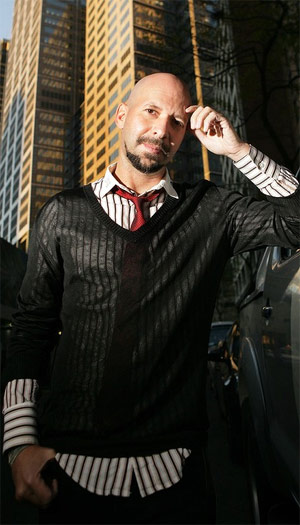 Almost two years ago, I traveled from Brisbane to Sydney to meet Neil Strauss – my favourite writer [pictured right] – for a face-to-face interview. It was a life-changing experience, and that’s no exaggeration: being in his presence solidified my decision to seriously pursue journalism. (Up until that point, I’d only dabbled; the interview was ostensibly for FourThousand.com.au, a Brisbane-focused online publication). That meeting, and our resultant conversation, is documented in full here.
Almost two years ago, I traveled from Brisbane to Sydney to meet Neil Strauss – my favourite writer [pictured right] – for a face-to-face interview. It was a life-changing experience, and that’s no exaggeration: being in his presence solidified my decision to seriously pursue journalism. (Up until that point, I’d only dabbled; the interview was ostensibly for FourThousand.com.au, a Brisbane-focused online publication). That meeting, and our resultant conversation, is documented in full here.
This time around, when Neil’s new book Everyone Loves You When You’re Dead – a collection of enlightening and revealing moments taken from his 3000+ interviews with cultural figures for Rolling Stone and The New York Times – appeared on Text Publishing’s Australian release schedule, I was in the position to get paid to interview my favourite writer, rather than spending a few hundred dollars on travel for the same opportunity. Which is nice.
I interviewed Neil over the phone from his home in California for The Courier-Mail in early March 2011, before the book was released. I published a 800 word article here, which summarised our 45 minute conversation.
Our full interview transcript is included below.
Beware: throughout our interview, there are many references to the content of …When You’re Dead, so if you haven’t read it yet, you might want to avoid reading this interview. Maybe not.
++
Firstly, I want to talk about the final chapter of the book, and the epilogue. I thought it was a very touching note to end on; it wrapped everything up nicely. It made me wonder; was that section about [American rock and folk music critic] Paul Nelson always going to close the book? [Note: Nelson died in 2006 due to apparent starvation. Strauss wrote a feature for Rolling Stone about his death, called “The Man Who Disappeared”; in When You’re Dead, he says it was the hardest article he’s ever had to write.]
No. I don’t think any book is ever planned. It always sort of just happens. I guess I knew I wanted the last section to be about family and mortality, and I felt I put so much heart and time into the Paul Nelson piece, it seems like a fitting epilogue for the book. And it rolled so nicely into the actual epilogue. I knew that each section was going to have a theme, and the last section was really going to look at mortality around different angles, in a parallex way. That got more appropriate there. It just sort of landed there.
When I’m writing, I never think in advance. I just keep hammering and hammering. They’re like puzzles. You’re putting everything together and you keep rearranging until you feel that it’s right.
Something that Paul’s ex-wife said made me think of you, Neil. She said, “I found out more about him by reading what he wrote.” I wondered if you’d ever heard the same thing from those close to you.
[laughs] You know what? That’s such a good comment. I’ve never heard that, but I know it’s 100% true. One hundred per cent true. There are things that I can’t tell people face-to-face, whether they’re just friends of mine, or people I love who are close to my life, yet for some reason I’m not afraid to write about them, even though I know they’ll see ‘em.
Even the stuff in The Game, I’ve never told people because I was worried they would judge me. The stuff in Rules Of The Game, in that first story about that really, really old woman. My friends would have just ripped… it would have been publicly humiliating. But I guess I feel if I can write it I can really explain it fully, all the dimensions to it and I can make sure it’s said right, and comes out right.
That way I can say it the best way I can possibly say it. It’s so true. It’s interesting. It might be something… I just interviewed Howard Stern for Rolling Stone, and I realised what we have in common. It’s hard sometimes to communicate the truth, as a guy like me, because it’s hard to deal with peoples’ emotions. If you say something that affects someone you have to deal with their emotional reaction to it. And maybe in a book, as horrible as this sounds, no-one is talking back to you, to that idea. No-one is saying that it’s wrong or that it hurts them, or is an unhealthy way to think, or it’s a judgmental thing to say, or whatever. It’s a semi-one-way conversation. I’m speaking to a bunch of people, but they’re sort of a faceless, invisible mob.
I see what you mean. Most journalists I know admit to feeling guilty for drilling into peoples’ minds to make their stories public. I’d like to know your take on that.
I never feel guilty, because I never try to hurt anybody with a story. I’ve never been a gossip reporter. I’ve never sat outside somebody’s house chasing them. Everything I’ve ever written, at least in journalism, is in the context of, you know, “I’m here to write a story, and anything you say or do can end up in that story”. So they’re making the choices. I’ve never tried to assassinate anyone. I’m always trying to show them as they are.
Sometimes I feel guilty in the sense of after we did this interview; say I spent a long time with this musician, and I’m leaving with four hours of recordings of them spilling their soul to me, and all of a sudden it’s like, “thank you very much, good-bye”, and I’m just walking away with their soul on a tape, to some degree. They have nothing. That part always feels strange to me, like having sex with someone, then pulling out and running away.
The fact that you’re working with ‘household names’ most of the time, does that increase the guilt, knowing that you’re exposing them even further?
No. I would feel that with anyone. If I’d just interviewed a guy off the street for four hours, or for a day or a week, about their inner most thoughts and fears; their life, their insecurities, and their hopes and dreams and ambitions, and then I just walked away… I’d still feel horrible, because they have nothing. I’ve got this tape recorder that has everything. It’s a feeling of: I’ve taken something and I’ve walked away with it, and what do they have? Nothing.
Even though that’s not how it works – obviously they have the promotion and the press and whatever the article is [about] – but it’s still a way where they’re bereft, and here I am with everything. You try and shape it as honestly as you can, but there’s also a trust element, where you could shape it any way you want.
Speaking broadly, have you thought much about why people are so interested to read about the lives of famous people?
I don’t believe that. I didn’t put the most famous people I interviewed in the book. A lot of the people I interviewed, whose heart and fame I adore, whether it’s Stevie Wonder, Iggy Pop… who I didn’t put in the book, because the interviews weren’t revelatory. I think if anything, what makes it look unique is: there are a lot of people who spend their lives interviewing famous people, but just as interesting as Lady Gaga and Justin Timberlake and Bruce Springsteen are Von Lmo, and Patrick Miller, and Lucia Pamela, who probably 99.9% of readers never heard of. And yet they’re going to find those just as interesting as the big stars.
I just think people are interesting if you get them at the right moment, you know? [laughs] I do think that on some level, celebrities are being used to sell the book, and that’s a lot of what I’ve written about, but to me the Ernie K-Doe experience – the 50s R&B star who tried to have me arrested, or again, Patrick Miller who’s smoking crack and doing heroin in his basement and fighting off hallucinations – they’re even more interesting than reading about… for example, Led Zeppelin just being assholes. [laughs]
To talk about the book in broader terms; this book is not directly about you, it’s about revealing other people. It’s been a while since you’ve done a project like that.
Right. But I think in a lot of ways the book is about me. I really made a conscious effort to keep myself out of it but I think between the lines, the book really is an element of my… I think each book is little elements of my autobiography. Whether it’s The Game, which covers a couple of years; Emergency covers a couple years. This, to me, is like the prequel in some ways, [laughs] because this is all I did for 20 years. This is my life for that time, and I think if you look at the pieces, you can see my own evolution as a person. Whether it’s Led Zeppelin making fun of me [for being inexperienced], to learning The Game and trying to seduce people into these interviews, to much later, meeting Lady Gaga and Chuck Berry and giving them life advice. I can see my own evolution in the book. It’s just not explicit.
When you began putting this book together, at what point did you decide to do that concept of the threaded narratives, or ‘open loops’?
I think what I did was, I broke down all those interviews to those little clips, and each clip was a standalone clip. Then I collected the most interesting [clips]. Some people were interesting for only one clip, for one little vignette. Other people maybe had three or four vignettes in which they were interesting. Then I sort of sequenced them together, so that everything matched together. The vignettes were really standalone stories about an idea, so I thought that it’d be nice where, “Hey, we get this idea, now here’s a couple ideas from someone else, now let’s return to a new idea for that person we just met”.
I kind of saw each piece as almost a standalone piece. Even when they continue from scene one to scene two to scene three, sometimes the story continues. Sometimes they’re just completely separate ideas. Other times, which I kind of like, you see artists at different times in their career. Maybe a couple years later, they feel bad about what they said earlier.
It’s interesting that a lot of the segues between the vignettes are artists mentioning other artists. That shows the breadth of the 20 years that you’ve spent doing this.
Yeah, it’s really funny. I’d probably say, with one or two notable exceptions, almost every artist someone mentions is interviewed elsewhere in the book, so it’s like the book itself; it’s kind of a closed loop. It is funny, there really were points where Trent Reznor mentions Beck, Gwen Stefani, Marilyn Manson and Oasis and I’ve got all four of those people interviewed elsewhere in the book. It’s like: which one do I put next?
I think there’s one section where all the artists are always talking about each other, Billy Corgan, Marilyn Manson, I think Courtney Love, Dave Navarro, And they’re all kind of referencing each other.
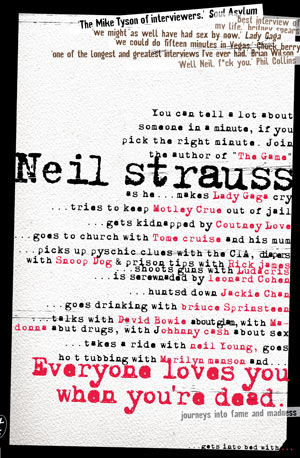 You state in the intro that “you can tell a lot about a person in a minute, if you pick the right minute”. Was that always the premise of the book?
You state in the intro that “you can tell a lot about a person in a minute, if you pick the right minute”. Was that always the premise of the book?
No, the original idea was because Emergency – as you know from when we talked – Emergency was so much work. I basically had to learn how to rebuild the entirety of civilisation all by myself, you know? [laughs] It was so intense, so much work, I thought I’d give myself a break and do an anthology because anyone who’s been writing articles and features for 20 years feels like, “why not collect my favourite pieces and put them in a book?”
I started collecting [my] pieces and reading them, but… I like telling stories. There were no through lines. I bought a bunch of anthologies from writers I liked. Half of them I didn’t finish, because I got bored. With the other half, after I was done, I was bored of the writer, and bored of the voice, because it’s not a book if it’s just articles bound together.
Although it literally is my dream project, as for over 10 years I’d been collecting all my favourite articles in a file to put into an essay book. Then I realised it doesn’t work. Every book one does, or every film, or every record should be good enough that if anybody starts with any single one, they’ll then want to read the rest of what you’ve done. I felt if somebody read [a straight anthology] first, and it was the first book of mine [that they’d read], they might not be be intrigued enough to want to read the others.
I wrestled with it for a while. I thought I’d write a story about being a down-and-out writer in New York, and merge some of the articles that happened during that time, and tried a couple of other formats. Gradually I realised that essentially, these articles were moments when you saw the real person behind the mask.
I started collecting those. That two month quickie book became fuckin’ two years of intense work. Unlike Emergency, which was fun, I got to go live off in the wild and learn how to pick locks and go to junkyards and hotwire cars. The Game was fun because I got to run around the world and meet women. This time, I was stuck in a room with my own past, sorting through thousands of pages of transcriptions.
The way I think of it, this book is the journalistic opposite of taking the easy way out. Like you said, rather than putting together your best, or favourite published work, you’ve really gone through and mined your past for the best material.
Yeah, and it’s funny because I even had most of the interviews re-transcribed. I had somebody go back to the tapes. I said, “I want every time someone coughs, every time they paused, every time there’s an interruption, I want you to write it out like it’s a play and tell me everything going on”. Even though that’s time consuming and expensive and laborious, I was pretty adamant about getting everything from those tapes and looking for those little moments.
I was going to ask: how much of this book existed on your hard drive already?
I think only about 10% were on the hard drive as they were. A lot were already transcribed, but just not well enough. Sometimes, for example, if it’s someone transcribing something, they might not take the part where the guy just asked me as an off-hand thing, “Hey, do you know now to make beans?” The truth is; the guy who’s talking about his album and why he wrote songs, it’s really more revealing to me that he asks the journalist “How do you make beans?,” because he’s trying to cook for his son. That tells me more about the person than some long story about his album. I tried to get most of them transcribed, and the only ones that didn’t were when I couldn’t find the original tapes. I literally called people who transcribed tapes 10 years ago, and had them find the tapes and bring them back to me.
Was this the first time in your career that you’d really sat down and gone through all your old stuff?
For sure. Absolutely.
What were some of the personal highlights when you were going through that material?
To me, the highlight for sure was finding all these all pitch letters I’d written to people, trying to write articles for different magazines, different newspapers; finding letters I’d written to my family about how excited I was that this article was out, because you forget how much you struggled sometimes. You forget how excited you are at those first-floor victories. That was kinda moving. It’s really easy to forget the past, because we get so caught up in the present. It was cool to see that. Everyone has a passion and a dream, and it was cool to see that I somehow was lucky enough to live that passionate dream, and even overshot, somewhat, my goal. My only goal was to write a weekly column for Village Voice. I did that by the time I was 22, so everything since then has been gravy.
That’s awesome. Let’s talk about interviewing. What is an interview to you, now? Has it changed since you started doing interviews back then?
No. I think I’m better at it. The interview’s still the same thing. An interview is still me trying to get as close to someone I can and write an article that somehow captures who they are, and that says something new about the person that hasn’t been written before. It’s always been the same thing, and I’ve always been really hard on myself about them. They’re never easy, and they need a lot of preparation.
What makes a good interview?
In the end, it’s about how you write it. I could say to me there are three kinds of good interviews. I’m just thinking of this out loud as we’re talking. One is where someone really examines themselves in a very honest way and is really emotionally vulnerable, and open, and honest with you. Another kind of good interview is where crazy shit happens, like the first time I’m going to interview Motley Crue, and the police are literally arresting Nikki and Tommy, and in the meantime Vince Neil is blow-drying his hair the whole time. That’s a great interview. They haven’t said a word, and it’s already the fucking best interview ever. The third kind is where the subject sucks, where they’ve got fucking nothing to say. They’re really closed off, not giving you anything, and then that’s an opportunity for me to be a creative writer. [laughs] One thing is the material. The other thing is what you make of it.
I saw a recent press interview for this book, with Cleveland.com, where you told them that when you do an interview you’re petrified with fear and you’re stressed out. I’m surprised that you still feel this way, after doing it for over 20 years.
For sure, man. My last interview was with Howard Stern… I’m definitely doing fewer and fewer [interviews] over time. I really only want to do one or two a year. But yeah, of course [I’m stressed], because you have to somehow go in, you have a limited amount of time with someone, and you have to walk away and leave with something they’ve never told to anyone else before, or at least any other writer before. That’s a lot of pressure. You’re not in control of it, they’re in control of it.
My last interview with Howard Stern, who spills his whole life on the radio every day. How do you get that guy to say something new? There’s a burden. I think the better you get at something, the more intimidating it gets. For example, the better I got at pickup during The Game, the harder the approach was because my expectations and everyone else’s expectations were so high of me. To make the parallel, when I approached a girl in the past, if I didn’t get slapped or laughed at, it was a success. In other words, if some crazy wild adventure didn’t happen with this woman, then I failed.
It’s the same with an interview. In the past, just to get the interview was enough. I succeeded by getting to be in the same room as this great artist who I looked up to. Now it’s not enough. I’ve got to get the best interview this person has ever given in their life. So the better you get at something, the harder and more intimidating it gets. I’m sure that’s true for you. When we had that interview before, I would say the success was fucking even getting it [in the first place].
Definitely. I know what you mean. You said when we first met that your goal was to get the best possible material out of someone, and like you said; if it’s someone who speaks for a living it’s hard to find some new truth in that. But it’s still the goal. It’s my goal every time, regardless whether it’s a 15 minute phoner or a couple of days with someone, you still want to get the best. You want to be the best. It’s your standards you’ve got to live up to and you want to put them as high as you can.
Yeah. And as an interviewer, you’re not in control of that. If you’re just writing an article you can make it the best if it’s all up to you, and how well you write, but in an interview you’re not in control of that. I agree.
Is it a matter of the bigger the star you interview the more nervous you are beforehand, or is it similar across the board?
I think it all depends on the situation. I’m more nervous if the star has only given us one hour in a room together. Unless I’m going to be going on tour with them for a week because I know I’ll get time to get what I need. I guess it’s not how famous they are, it’s how short of a time I have to get to connect with them.
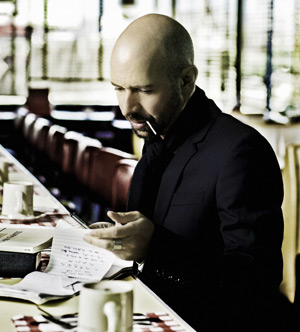 When we first met, I think the first thing you told me when you walked over and looked at my sheet of paper, was: “Ready for all 15 questions,” and then you said what you do to prepare for an interview is brainwash yourself with the person’s career and write down every single question that comes to mind. Now besides those two elements, researching and writing down questions, is there something more? Is there a routine to preparing for interviews beyond just research?
When we first met, I think the first thing you told me when you walked over and looked at my sheet of paper, was: “Ready for all 15 questions,” and then you said what you do to prepare for an interview is brainwash yourself with the person’s career and write down every single question that comes to mind. Now besides those two elements, researching and writing down questions, is there something more? Is there a routine to preparing for interviews beyond just research?
I think it’s kind of what I said before, that brainwashing which is reading all the books, reading every article about them, reading any books if they’ve written any, listening to every album, watching every movie they’re in, and then as I’m doing these things writing down every question that I can possibly ever thing of. Then studying those questions and arranging those questions in a sequence I kind of want to ask them, and then studying those questions like I’m preparing for an exam, where I don’t know what the questions are going to be on the test. [laughs] There’s a lot of big interviews I turned down, because I really didn’t want to get that deep. I wasn’t that interested enough in the artist to get that deep in their life, and their work.
When you’re meeting face-to-face with your subjects, do you pick clothes to make you appear a certain way?
No, in fact I’ll usually dress more down than I would if I was going out myself because I want them to know they’re they star, I’m not trying to say… I think if someone walked into the interview saying “hey, we’re equals! Hey, look at me, I’m one of you too!” the star’s already like “no you’re not.” [laughs] So if anything, I try to play myself down. Even the Howard Stern interview I did today ended up on the air and it’s on TV and you see it, I’m dressed in a sweatshirt and jeans. I really try to be like, “you’re the star. I’m not going to be so embarrassing you can’t be seen with me, but I’m not going to be dressed like I think I’m a star too”. I think that’s the wrong attitude to go into an interview with. In fact, going into any situation whether it’s pickup, survival, or an interview trying to impress someone is the exact wrong attitude to have.
The way you say that makes me think that you’ve made that mistake in the past and you learned not to act that way. Is that correct?
No, I never did because when I started out, I really was super, super humbled by these amazing people I got to be in the same room with. And I really was kind of young and innocent. I did it before, but it wasn’t a mistake, when I did that Ludacris interview. There was an idea that we had the ‘Ho’lympics’, a contest where it was me against Ludacris doing all these crazy things, like the one-hand bra unhooking contest. I brought one of my peacocking outfits from The Game, like this snakeskin suit. It was funny. He loved it. He thought it was fucking hilarious. It hasn’t been a mistake when I’ve done it in the past and I think it’s less about dress and more about attitude. But I know my place, I know the role. They’re the star and I’m the person who’s translating that message to the world.
Out of interest, Neil, do you have a musical background?
No, I can play a little bit of music and I’ve even been in bands and stuff, but my goal was never to be a musician. If anything, if I was to end up anywhere in the musical side of things it would have been as a producer, because I think in a way it’s similar to being a critic. There’s a sense of saying “what can we do?”. It’s being a critic, but earlier on in the process, where you can actually have some effect on the music.
True, I see that. The reason I asked is: that bit of musical knowledge that you have beyond being a critic – you actually know how to play some music – do you think that’s been advantageous for you to help relate to musicians?
Not always. Sometimes it’s been fun, because I did piece on this band Sebadoh, and we went and recorded a punk rock single together. There were a lot of cool things that didn’t make it in the book, but I had to select what was most interesting. But [musical knowledge] has helped in a couple of cases. I also find that musical dialogue won’t be interesting to the general audience of Rolling Stone or The New York Times. If I wrote for Musician or Guitar World it would, but I think that would have hurt the interviews. Because maybe [the interview subject and I] would have bonded over it, but it’s not going to create any kind of dialogue that’s going to be appropriate for that kind of article.
I think there might be an element, too, of if you cover musicians, then I think you need to come in as a journalist, and not as a fellow musician. To me, the best asset one has in an interview is curiosity. It’s better than an outfit; better than musical knowledge. And even having brushed up and having prepared, I think genuine, sincere curiosity is the best tool you have.
I find that simply listening and responding to a person is just as important as background research. A good example of that in the book – of you just listening and going with the flow – is when you tell Britney Spears that you know exactly what she’s talking about, even though you have no idea.
[laughs] Yeah, exactly. I think there are a lot of points in a lot of interviews where you’re saying ‘yes’. We’re agreeing just so you don’t stop the roll they’re on. I think there’s definitely some crazy things I’ve fucking agreed with in interviews. I think it’s important not to judge the person in an interview, and not to judge whether they’re right or wrong, or if it makes sense. The job is to let them speak. Often, some of them I don’t even know… it isn’t until I look at the transcripts that I know what someone was really saying, or trying to say, because I can slow it down.
To talk about some more specific sections of the book, my favourite band of all time is Led Zeppelin, so I thoroughly enjoyed that section. [Neil interviewed Jimmy Page and Robert Plant for The New York Times. It was their first interview together since Zeppelin broke up 14 years earlier.]
That’s awesome.
I want to know what was going through your mind when you discovered that you hadn’t recorded those first 40 minutes of your interview.
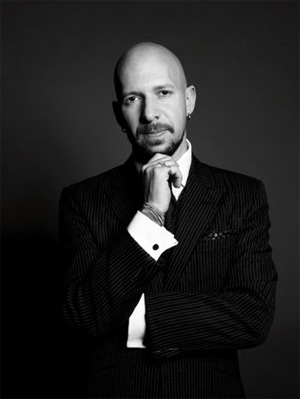
One, was that I was so fucking mad at myself. There are two interviews… I also love Ray Davies of The Kinks, and I missed that interview, too. I was just furious. After that, I started bringing two tape recorders to every interview and I’d have them recorded on two audio recorders just in case one failed, or goes wrong. I was thinking: “how do I re-ask these same questions and get those answers without them catching on?”
The other funny thing about that interview was that I was so young, and they were these icons. I think I’d read [Zeppelin biography] Hammer of the Gods and was obsessed about their… I was a guy who’d maybe slept with one or two women my whole life, so I think I was more obsessed with their sex life than their music. [laughs] And I wanted to know the story. I think at one point Jimmy Page asked me, “Do you have any questions that don’t involve sex?” [laughs] To me, they were legends not just for their music, but the lifestyle around it.
That bit about how you missed the first 40 minutes, it’s funny because it’s such a rookie error, and yet it was one of your first assignments for The New York Times.
Yeah! And that happens. Sometimes it’s unavoidable. There are so many things that could go wrong, especially with cassette decks. You can plug the microphone in the headphone jack, the batteries can die in the middle of the interview and you don’t notice it. The pause button can be on, and you’re recording. I think every one of these errors has happened to me, and that’s my biggest paranoia. I’m almost OCD about checking to make sure that it’s recording. Especially now, I get really paranoid with digital recorders because after you stop it, it has to store the information after you stop it, and what if it doesn’t store… I get so paranoid, man, because you can’t recreate what just happened.
That’s true. But you’ve got to have faith in technology, Neil.
You can have faith in technology, but if it goes wrong… like, you don’t know what’s left on your computer if it shuts down, and you lose your work.
I see where you’re coming from. I’ll remain blissfully naïve until that happens to me.
You can have faith in technology, and technology has things that are operated on electricity. Batteries can die. You can be working there and the power can go; anything can happen, especially when one has more faith in technology than one has in one’s self. One can rely on one’s self, you can’t rely on technology.
Some of my favourite parts in the book were when you revealed part of yourself, like right near the start when you’re talking with Madonna about drugs. You said that you didn’t like pills because “it’s a control thing”, and by making a statement and not asking a question, you encouraged her to go off on her little tangent about how she feels about that, which is an interesting tactic.
I do find that… I put those parts in this book less, but I’ll tell you something interesting, which is that as I was compiling the book, I was going back through a lot of parts in the book. You have to give a little to get something, so the parts of Madonna in the book – I saved these. I’ve got about 100 pages of it, I kind of collected my own personal biography through these interviews with these artists because at some point I’m telling them about my life. I’m telling Bruce Springsteen about how I got a job at The New York Times. I’m telling Lady Gaga about how I came to write The Game. I’m telling Tom Cruise about, I think about The Game also. I’m talking to Christine Aguilera about my childhood. I collected those parts of the interviews because I thought it would be fun if I ever do a straight-up biography, to mix in those interviews.
I was impressed by a few sections where you revealed your ability to form a bond with some of your subjects, like Shawn [Crahan] from Slipknot, and Chuck Berry.
Going back to what you were saying before, I do think I was very conscious to leave myself out of this as much as possible because I felt like you can see the book is showing who these other people are, and the less I’m in it, the better. In all my books, even though I might be a central character in The Game and Emergency, I still tried to put myself in as little, only in there as much as necessary to understand the subject being written about. I’m not in The Game and Emergency, I’m not giving my whole biography. I think I did the same thing in here, I just tried to give myself as little as possible, as was necessary to get to know the subject. But you like when those special bonds happen, you were saying?
Yeah, it’s cool, because the only time that most fans see these musicians is when they’re performing on stage, or in a music video, or they’re being interviewed on TV. But when you break outside of that… like how Shawn from Slipknot took the second cup from the top of a cup pyramid; this tiny little detail tells you a lot about a person.
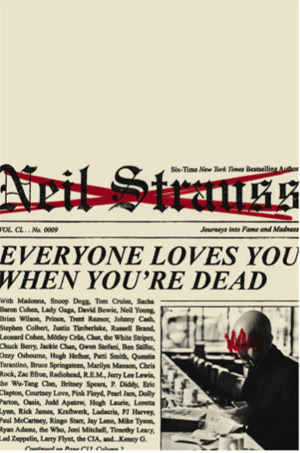 Yeah, and I loved that. That’s one of my favourite things about this [book] is when you come back and check in with someone later and see how they’ve grown, how they’ve changed, how maybe they take back what they said then, whether they’re sober or whether they’re on drugs. Whether they’re talking rehab speak – it’s a really cool barometer of watching someone grow in these little snapshots. They tell you about your own life too, because you can see how you’ve changed in those interviews as well.
Yeah, and I loved that. That’s one of my favourite things about this [book] is when you come back and check in with someone later and see how they’ve grown, how they’ve changed, how maybe they take back what they said then, whether they’re sober or whether they’re on drugs. Whether they’re talking rehab speak – it’s a really cool barometer of watching someone grow in these little snapshots. They tell you about your own life too, because you can see how you’ve changed in those interviews as well.
But my favourite time to talk to artists is when they’re in the creative process, versus when they’re in the promotional process. I love talking to them when they’re in the midst of creation because then they’re really wrestling, they’re really raw. When you get them in the promotion process, they’re closed.
I think an example in the book was Trent Reznor; you made that comment about how he was unpacking a videogamesconsoles, which would be upsetting to his listeners, because he’s obviously procrastinating, and not creating music.
Yeah. And I loved that interview, because it was so honest.
The idea of revealing a bit of yourself to the reader, there was a bit more of that when you asked Brian Wilson whether he’s a nervous person. Then you went on to state that having a very domineering, critical father can make people nervous and hesitant later in life, which I believe is a reflection of your own life.
It wasn’t that case, I think it was just from observation. I do have critical parents, probably more so on my mother’s side, but I think that was more like a general observation from a number of interviews, [as opposed to] saying that about myself. Though of course in interviews, I will often talk about myself. Again, I think if someone tries to suck all the information out, you’re kind of an asshole if you’re out to do that. There should be reciprocity. But I definitely wasn’t referring to myself in that case. Though now that you mention it, I definitely grew up in a household where nothing was ever good enough, and that definitely probably did contribute to the hesitancy and lack of confidence later in life, for sure.
After The Game came out and you started to get noticed, were there many instances during interviews of your reputation preceding you? Were some of your subjects were already aware of your work, even beyond music journalism?
Yeah, and it usually helped if they were aware of my work. I think it’s definitely true, versus some random name coming in to interview them, or a guy whose stories they’ve read in Rolling Stone. If they’ve sat there with a book, and read a book. It definitely helped.
Are you concerned that journalists like myself are going to read the book and steal your best material?
No, because that material is already out there. I mean, to me it’s like if somebody steals it… I’m scared until it’s out, like before I put the book out, I’m scared someone else is going to do an anthology like this, when it hasn’t been done before, and some other journalist is going to think about creating something like this. But once it’s out, I look forward to people… let’s not say stealing, but being inspired by it. [laughs] I think that’s the most awesome thing ever. If someone likes it enough to do something similar or use that material in their own way, that’s cool. Otherwise you’d never do anything, because otherwise you’d just be frozen.
There were two questions you asked in the book that totally blew me away, because I would never even have considered asking them. Do you want to know what they are?
Yeah, go ahead. Wait, I know your first one’s going to be: “could you made the best album ever, then bury it and never listen to it, but still be content?”
Yeah, that’s one.
And is the other one about “what’s more important, music or children”?
No.
I liked that one. “What’s the thing you felt you’ve given to the world most, music or children? What’s benefitted the world more?”
The other one was what you asked [the rapper] The Game – “what was the first money you ever made?” It’s such a simple question, but his answer reveals so much about him.
Oh yeah, “the first money I made wasn’t made, it was stolen”. [laughs] I don’t have stock questions I ask everybody. I really should have a list of questions I ask everybody, but I don’t. I usually ask that if I’m curious about it for that particular person. There are a couple that have been themes in my life because I’m always curious about family, and curious about artistic stuff.
So, my last question: have you sent this book out to any of the people who you interviewed?
Umm… no. [laughs]
Are you intending to?
No, I’m not planning to. I’ll just think I’ll let them find it. I don’t know why. It seems to me something where… for some reason, it seems boastful to send it to them. I don’t know why. I probably should. I think that would be a good idea to do. Even, like, Russell Brand, who I’m friends with, he told me I was in his book, and I didn’t tell him he was in my book. So I should probably do that.
Totally. Alright Neil, I’ll leave it there.
I look forward to catching up with you at a more calm point, and seeing you when I’m in Australia.
For sure man. Thanks for your time.
Thanks man. It’s been fun watching your evolution. Bye Andrew.
++
For more Neil Strauss, visit his website or follow him or Twitter.
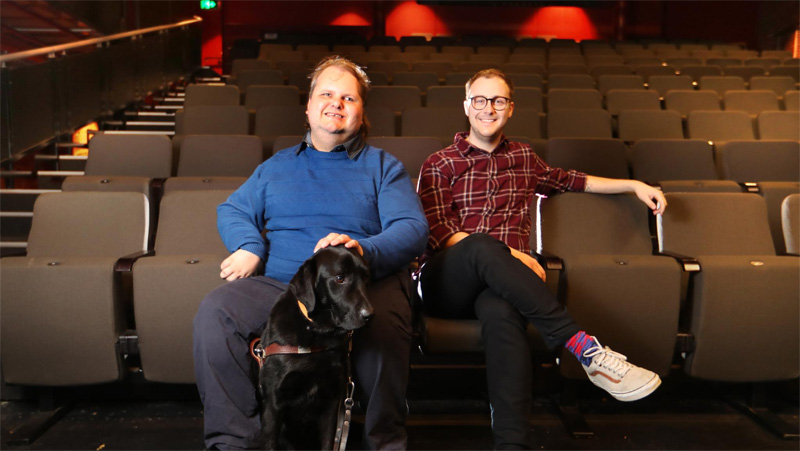
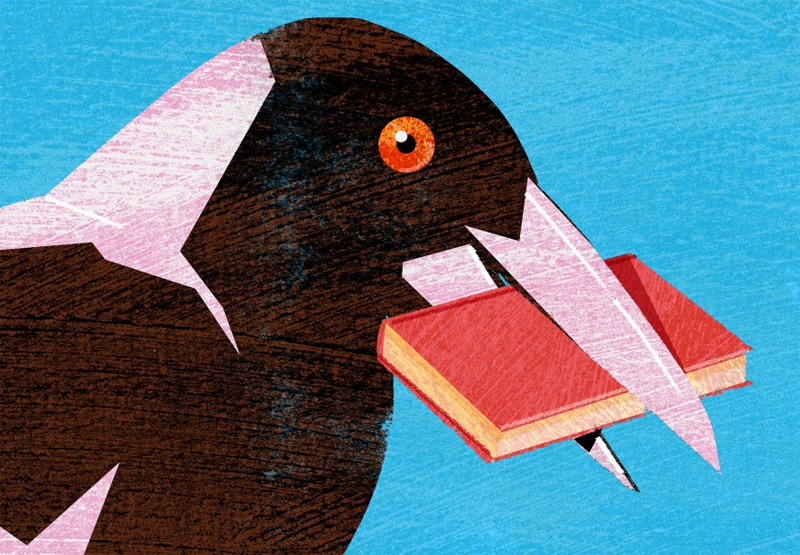
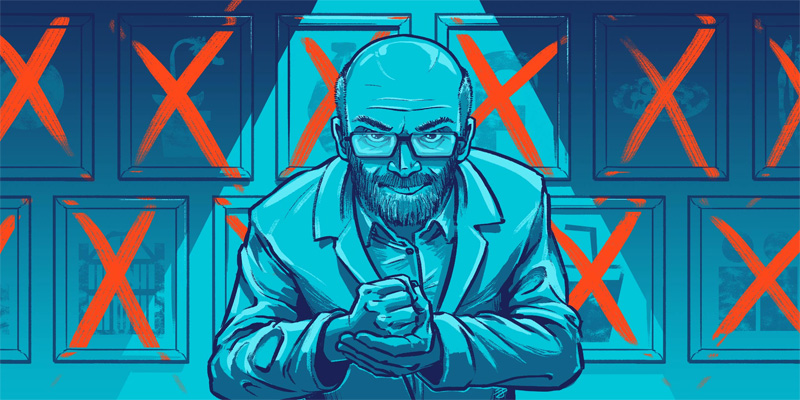
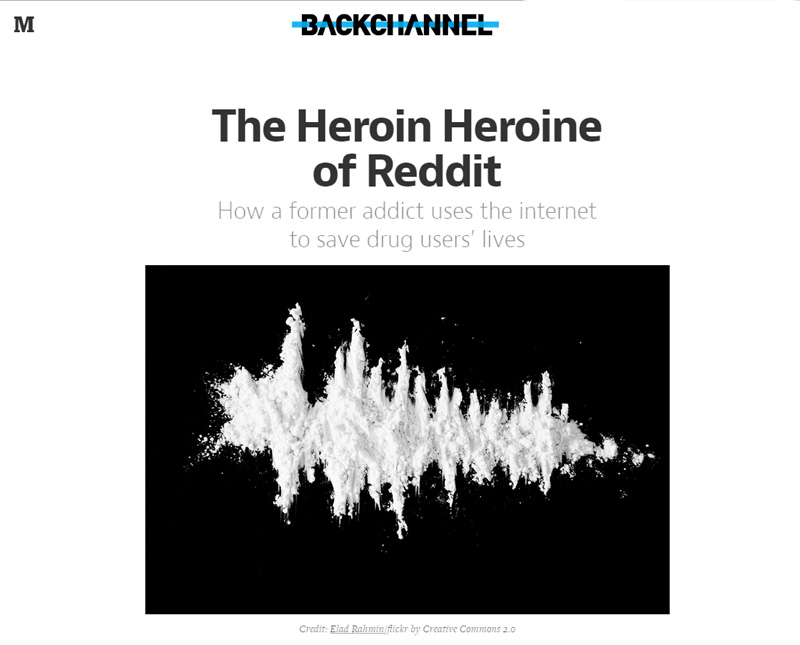
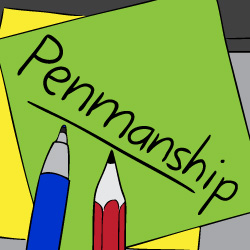
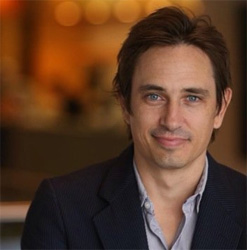
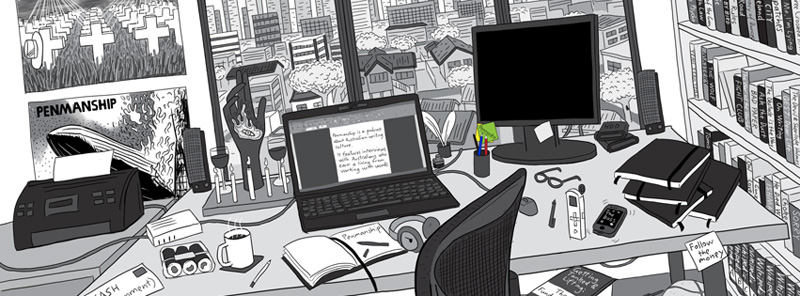

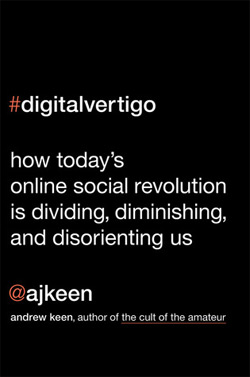 In Digital Vertigo [pictured right], Anglo-American entrepreneur Andrew Keen takes a critical stance against the technologists behind social networking tools such as Facebook and Twitter, for reasons exemplified in the book’s subtitle. Keen knows his topic from the inside: on the cover the title is presented as a Twitter hashtag and the author’s name as
In Digital Vertigo [pictured right], Anglo-American entrepreneur Andrew Keen takes a critical stance against the technologists behind social networking tools such as Facebook and Twitter, for reasons exemplified in the book’s subtitle. Keen knows his topic from the inside: on the cover the title is presented as a Twitter hashtag and the author’s name as 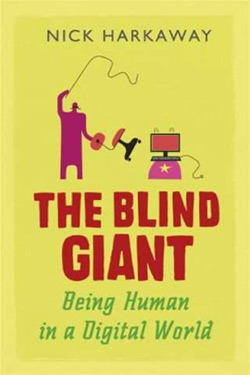 Conversely, British novelist Nick Harkaway tries his hand at long-form nonfiction for the first time in The Blind Giant [pictured right], and strikes on a narrative that immediately grips the reader. Using tight language and evocative descriptions, Harkaway’s introduction is a nightmare vision of a dystopian, tech-led society where “consciousness itself, abstracted thought and a sense of the individual as separate from the environment” are all withering away. A contrasting vision of a “happy valley” follows, and is just as realistic and compelling.
Conversely, British novelist Nick Harkaway tries his hand at long-form nonfiction for the first time in The Blind Giant [pictured right], and strikes on a narrative that immediately grips the reader. Using tight language and evocative descriptions, Harkaway’s introduction is a nightmare vision of a dystopian, tech-led society where “consciousness itself, abstracted thought and a sense of the individual as separate from the environment” are all withering away. A contrasting vision of a “happy valley” follows, and is just as realistic and compelling.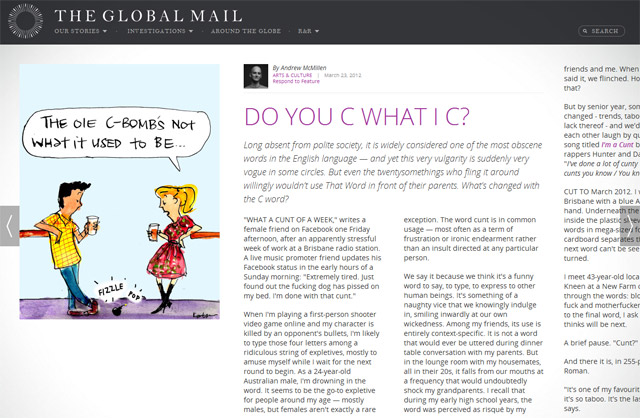
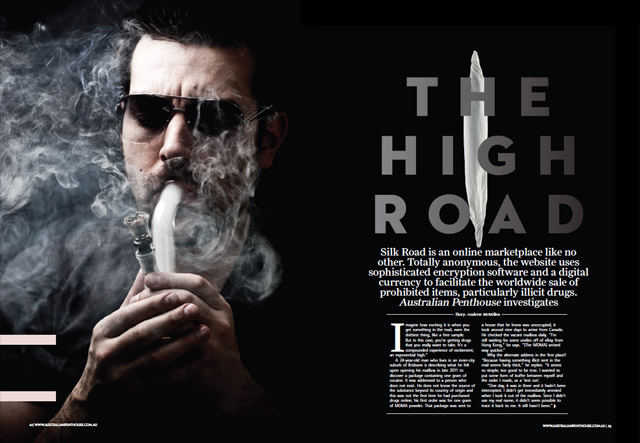
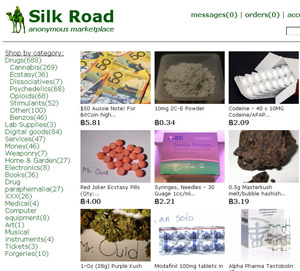
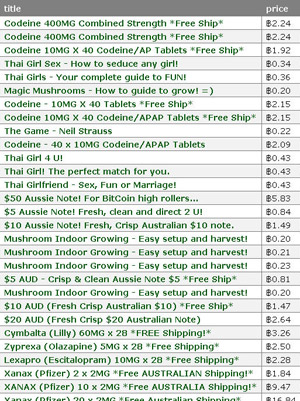
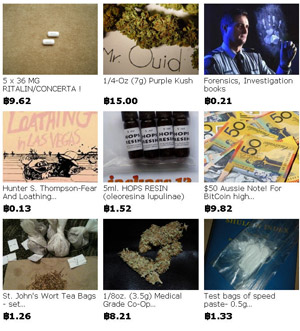
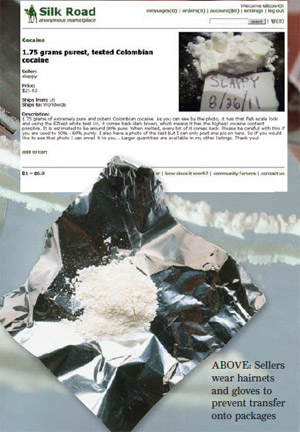
 Almost two years ago, I traveled from Brisbane to Sydney to meet Neil Strauss – my favourite writer [pictured right] – for a
Almost two years ago, I traveled from Brisbane to Sydney to meet Neil Strauss – my favourite writer [pictured right] – for a  You state in the intro that “you can tell a lot about a person in a minute, if you pick the right minute”. Was that always the premise of the book?
You state in the intro that “you can tell a lot about a person in a minute, if you pick the right minute”. Was that always the premise of the book? When
When 
 Yeah, and I loved that. That’s one of my favourite things about this [book] is when you come back and check in with someone later and see how they’ve grown, how they’ve changed, how maybe they take back what they said then, whether they’re sober or whether they’re on drugs. Whether they’re talking rehab speak – it’s a really cool barometer of watching someone grow in these little snapshots. They tell you about your own life too, because you can see how you’ve changed in those interviews as well.
Yeah, and I loved that. That’s one of my favourite things about this [book] is when you come back and check in with someone later and see how they’ve grown, how they’ve changed, how maybe they take back what they said then, whether they’re sober or whether they’re on drugs. Whether they’re talking rehab speak – it’s a really cool barometer of watching someone grow in these little snapshots. They tell you about your own life too, because you can see how you’ve changed in those interviews as well.